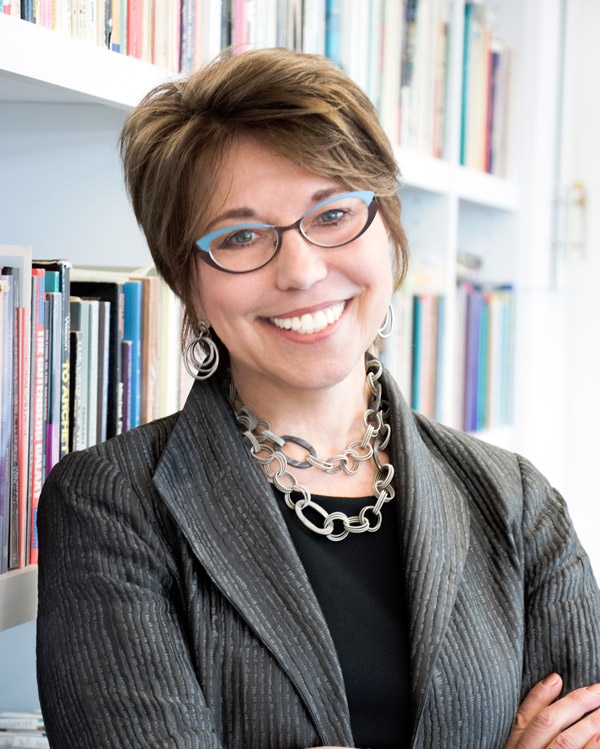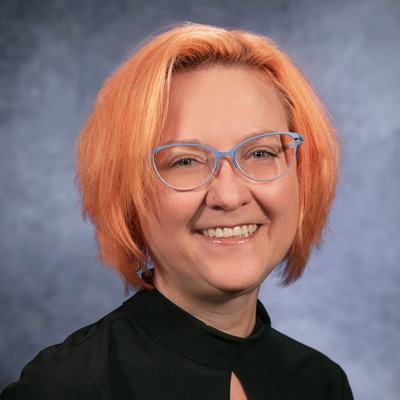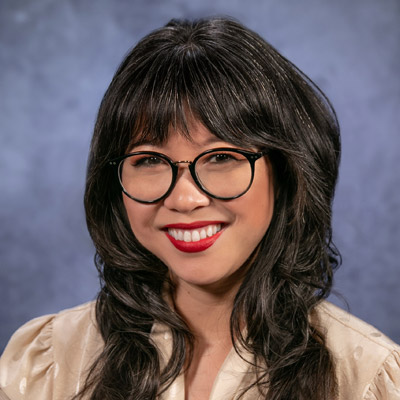
Dr. Anne Balsamo
The School of Arts, Technology, and Emerging Communication at UT Dallas has two new tenure-track faculty members who will teach and conduct research in their respective fields — mobile technologies and habits, and race, technology and media.
“Our goal in ATEC is to encourage students to think complexly about technology, about culture and about the many ways in which the two are inextricably entangled,” said Dr. Anne Balsamo, dean of the school, Arts and Technology Distinguished University Chair and Arts and Humanities Distinguished Chair. “These new faculty members bring deep expertise in teaching and research that addresses issues of race, gender, sexuality and media experience.”
The school offers degree programs in animation, critical media studies, design and production, game study and development, interactive design, and networked cultures, and is home to numerous labs and studios.
New Tenure-Track Faculty

Dr. Heidi Cooley
Dr. Heidi Cooley, associate professor of critical media studies and co-director of the Public Interactives Research Lab
Previously: associate professor of media arts and film and media studies at the University of South Carolina
Research interests: media theory; mobile technologies, urban screens and sentient (“smart”) environments; place-based digital cultural heritage; habit and habit change; surveillance/tracking
Quote: “I investigate what it means to live in an age when mobile devices have become our partners — when our accessories keep track of our steps toward optimal health, and when the landscapes through which we navigate are becoming ‘smarter’ and more responsive to our movements through them. Instead of interpreting these technologies as surveillance apparatuses, freedom machines, or both, I consider the routine practices — that is, habits — they engender. We are well-aware that technologies are habit-forming. How might they inspire habit change? For example, in what circumstances can the ubiquitous blue bead point somewhere other than where we expected to find ourselves and thereby compel us to reinterpret where we are? To explore what habit change might look like in the mobile-connected present, I collaborate with interdisciplinary teams to design geo-locative software applications that present unacknowledged histories of place.”

Dr. Wendy Sung
Dr. Wendy Sung, assistant professor of critical media studies
Previously: University of California President’s postdoctoral fellow at UC Riverside
Research interests: histories of racial formation; cultural studies; digital media studies; cultural memory and spectatorship practices; comparative ethnic studies; racial violence and visuality
Quote: “I examine the relationships between race, technology and media cultures through the phenomenon of watching racial violence in 20th- and 21st-century American culture. Specifically, my research interrogates hidden connections between racial violence and emerging media, and explores how these relationships create new racial formations and produce unexpected modes of witnessing and memory that are integral to the concepts of freedom, technological advancement and racial progress in the U.S. Moreover, I see digital technology as both an object of study as well as a pedagogical opportunity. Thus, I am excited to be able to teach about how categories of identity have been rearticulated, recast and retranslated to the digital realm and to help this next generation of media and technology makers develop digital tools as racial- and social-justice tools here at UT Dallas.”
New Faculty Series
News Center is publishing profiles of tenured and tenure-track professors who have recently joined the University. The following school profiles have been published: